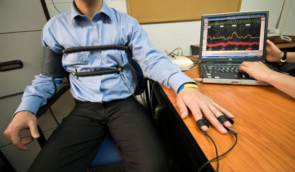76 years of the Geneva Conventions: ZMINA took part in a discussion on Russia’s violations of international humanitarian law
On 12 August 2025, the Diplomatic Academy of Ukraine hosted a conference entitled “International Humanitarian Law Amid Contemporary Challenges Conference”, dedicated to the 76th anniversary of the signing of the Geneva Conventions relative to the Protection of Victims of War. The conference was attended by Ukrainian Minister for Foreign Affairs Andrii Sybiha, his Czech counterpart Jan Lipavský, Ukrainian Ombudsman Dmytro Lubinets, and representatives of state, international and civil society organisations.
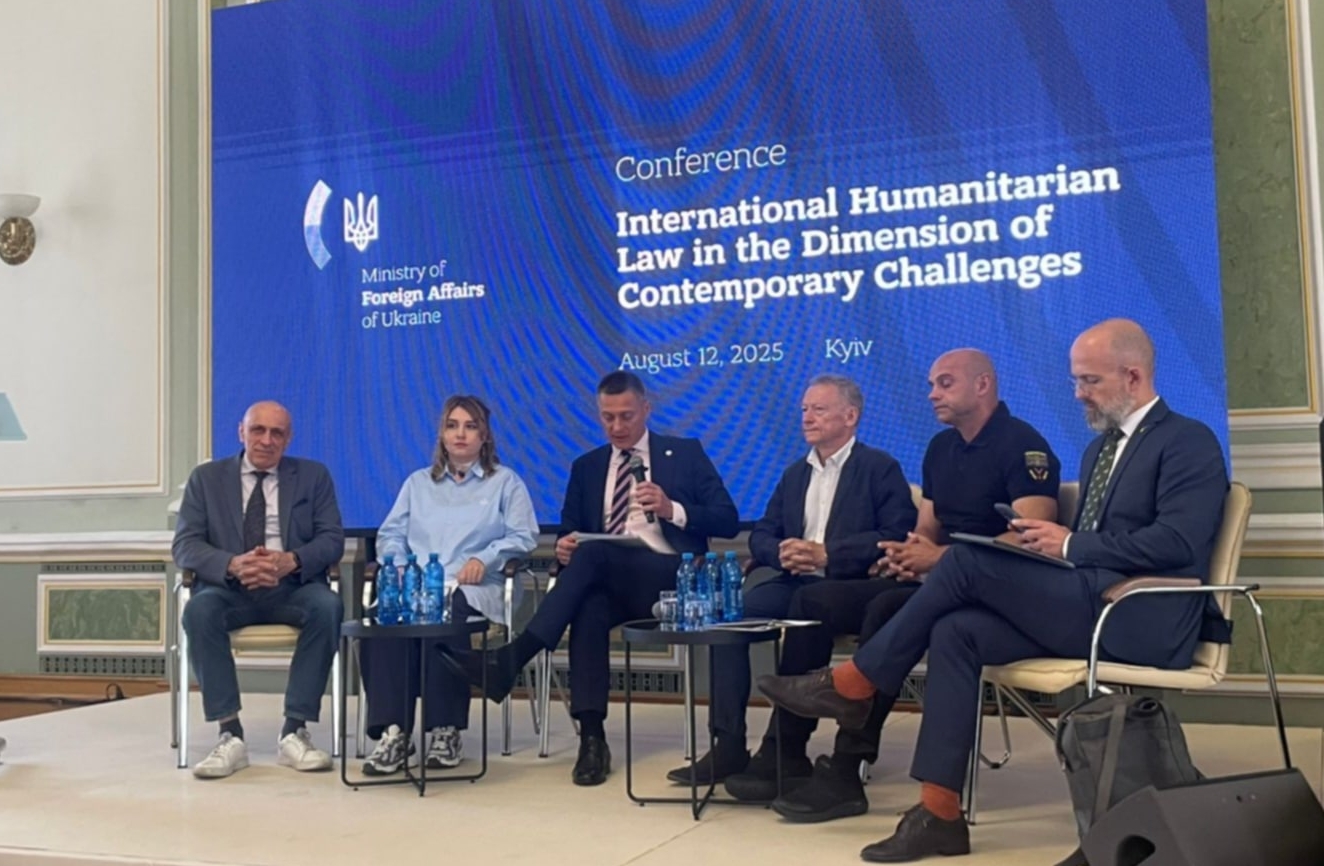
Andrii Sybiha noted in his speech that 90% of Ukrainian prisoners of war are subjected to torture by Russia. According to the minister, the Prosecutor General’s Office of Ukraine has recorded more than 175,000 war crimes.
The Foreign Minister called on the international community to return to strict compliance with the norms and principles of international humanitarian law and to introduce automatic sanctions mechanisms in response to its violation: “Violations must be punished. International humanitarian law is a guarantee of preserving humanity in the world. Together with international partners, Ukraine is working towards achieving justice. No single national jurisdiction is sufficient to address the scale of Russian war crimes in Ukraine“.
Andrii Sybiha also announced an initiative to create the International Humanitarian Law Progressive Development Platform, which aims to bring together states, international organisations, experts and civil society to identify gaps in existing law, develop new norms and promote their implementation.
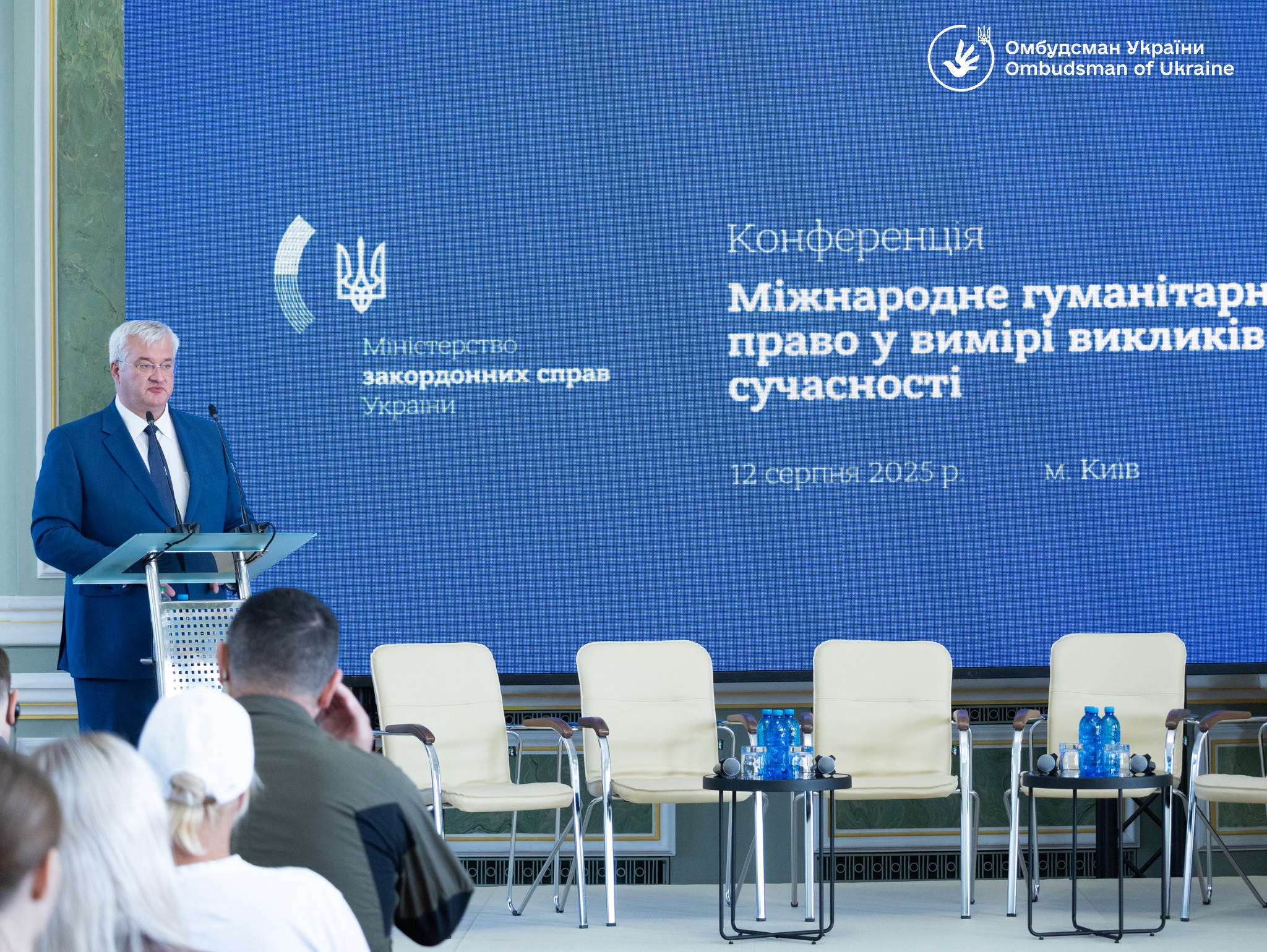 Andrii Sybiha. Photo credit: Office of the Ombudsman of Ukraine
Andrii Sybiha. Photo credit: Office of the Ombudsman of UkraineDmytro Lubinets emphasised that the main problem with international humanitarian law today is the lack of effective instruments to punish violators.
“The Geneva Conventions were adopted 76 years ago. Yet today, the mechanisms established after World War II do not guarantee protection. For over 11 years, the world has failed to respond adequately to Russia’s crimes in Ukraine,” the Ombudsman noted.
The representative of the Commissioner in the security and defence sector, Yurii Kovbasa, reported that the number of civilians held in unlawful detention can exceed 16,000. Ukraine has verified more than 1,800 such persons, of whom more than 800 have been confirmed by the International Committee of the Red Cross. He called on the international community to support the creation of a special protocol to the Geneva Convention for the protection of persons unlawfully deprived of their liberty.
The Ombudsman’s representative for children’s rights, Oksana Cherviakova, spoke about efforts to locate, return, support, and reintegrate children deported or forcibly displaced by Russia. She stressed the importance of documenting violations and recording the testimonies of victims to ensure that Russia is held accountable.
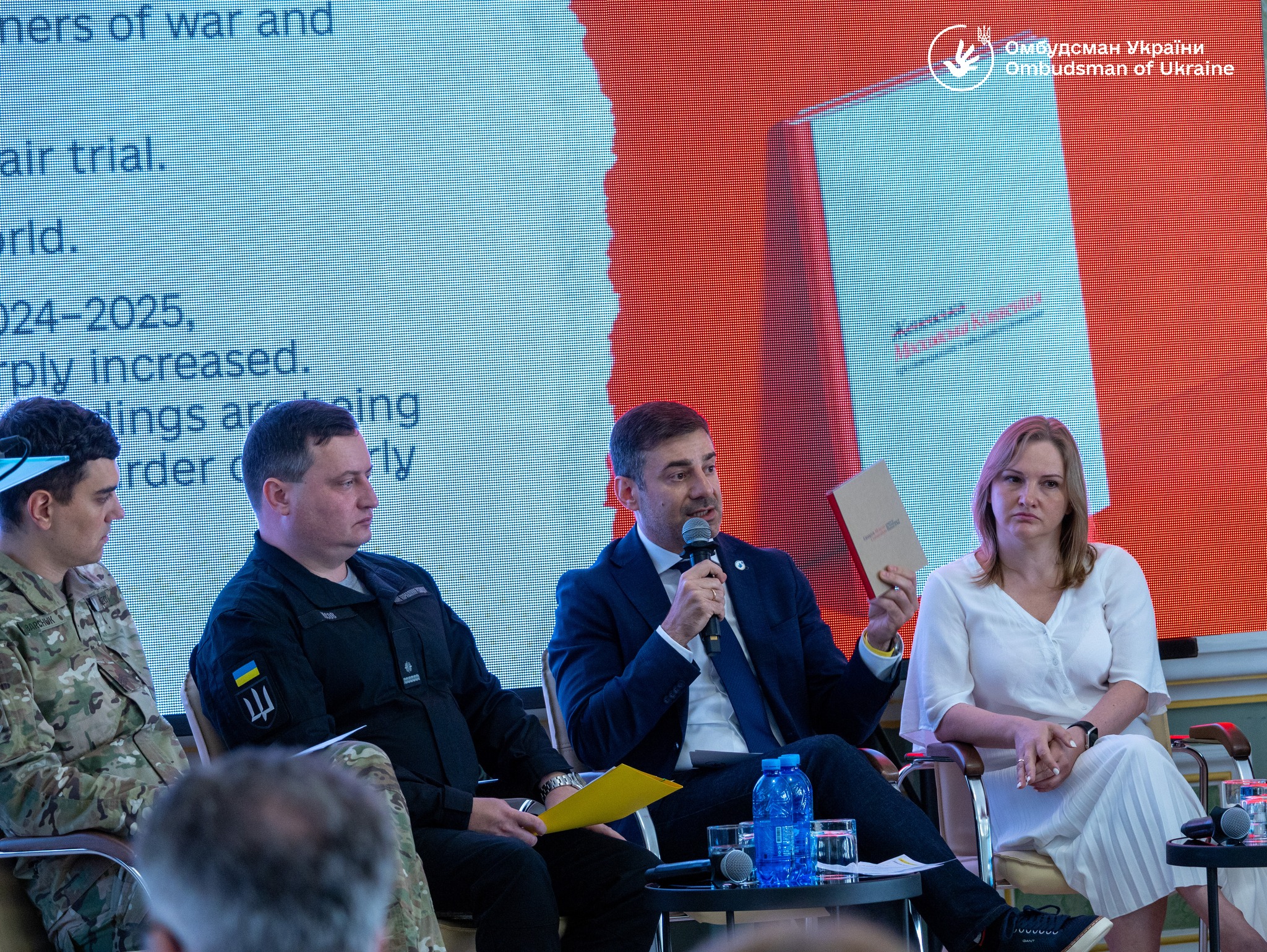 Office of the Ombudsman of Ukraine
Office of the Ombudsman of UkraineA separate segment of the conference was dedicated to a panel on the detention of civilians, where Onysiia Syniuk, Legal Analyst of the Human Rights Centre ZMINA, spoke.
She emphasised that international humanitarian law (IHL) provides a clear legal framework for the detention of civilians — internment or imprisonment — and that such measures may only be applied by the occupying power if there are legal grounds for doing so. IHL norms regulate conditions of detention, notification of the opposing party or the protecting power, and other standards.
“The way Russia detains and holds civilians is a violation of international humanitarian law: enforced disappearances, unlawful detentions, and the denial of the right to a fair trial. In cases where civilians are held without legal grounds, there is only one demand — their unconditional release,” Syniuk emphasised.
She noted that despite Ukraine’s official position, which calls for unconditional release, a state project called “Khochu k svoim” is operating in parallel, which provides for the exchange of civilians, including “Ukrainian citizen for Ukrainian citizen”. According to ZMINA’s legal analyst, this practice poses risks of legitimising unlawful detentions and undermining the status of protected categories.
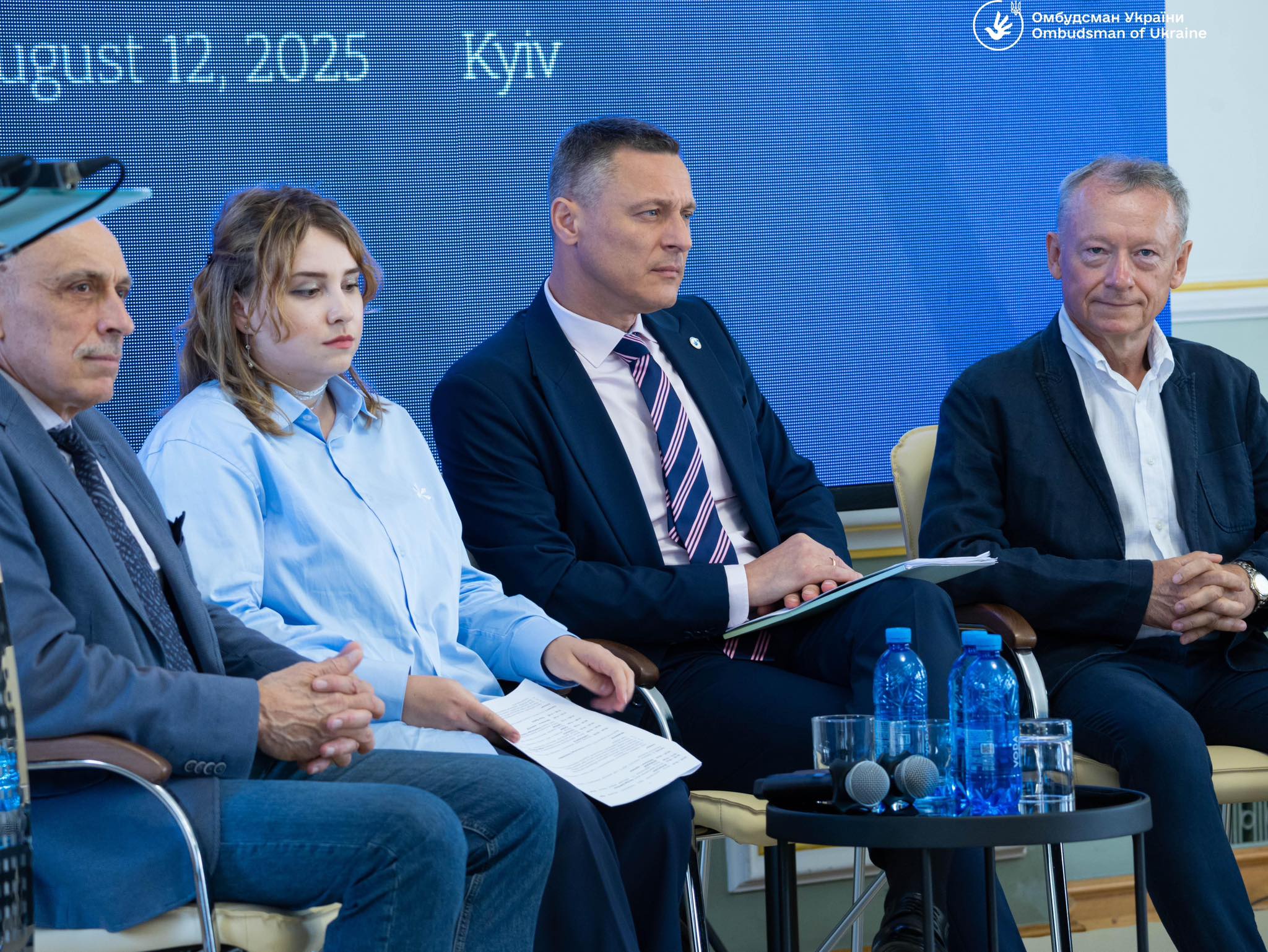 Photo credit: Office of the Ombudsman of Ukraine
Photo credit: Office of the Ombudsman of UkraineAmong the possible alternatives, Onysiia Syniuk mentioned:
- Categorisation of detained civilians (women, elderly people, wounded, seriously ill, etc.) as proposed by the MIHR, with advocacy for their release assigned to specific countries that are partners of Ukraine;
- Search for a protecting power under the Geneva Conventions, or a state that could represent the interests of Ukrainian citizens in Russia under the Vienna Convention on Consular Relations;
- Active use of IHL mechanisms that permit agreements between parties to an armed conflict for the release of internees
“Civilians held by Russia in occupied territories or places of detention are subjected to cruel treatment and torture. They cannot wait for regulatory changes — their release must be ensured now, using all the opportunities provided by international law,” the human rights defender concluded.
It should be noted that in 2024, the Human Rights Centre ZMINA, in cooperation with the Media Initiative for Human Rights, prepared an analytical note entitled “The return of civilians illegally detained in the Russian Federation: which state bodies of Ukraine are responsible“. It contains information on the powers and responsibilities of state institutions involved in the release of civilians. The analysis was prepared with the support of the Partnership Fund for a Resilient Ukraine.
If you have found a spelling error, please, notify us by selecting that text and pressing Ctrl+Enter.




